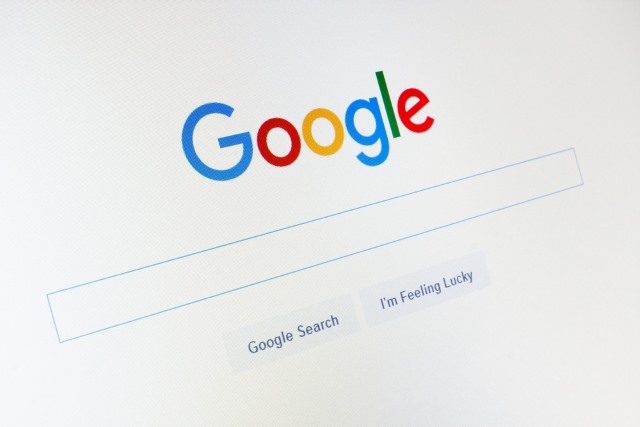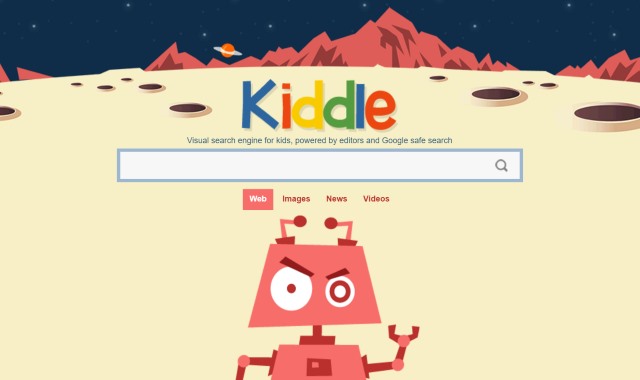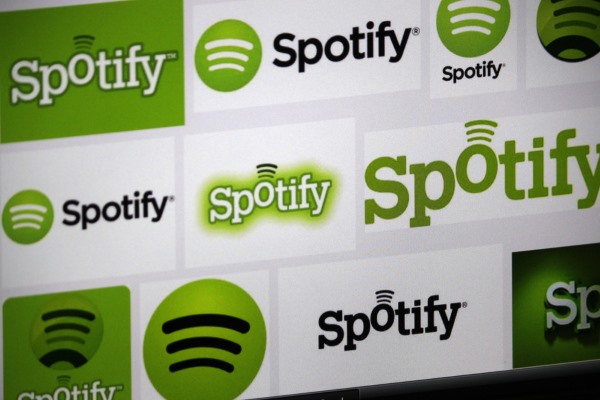
Google kills Project Fi invites and discounts Nexus 5X -- service now open to anyone in USA
Many consumers have a love/hate relationship with their cell providers. On the one hand, these companies provide us with our much-needed data -- allowing us to access the Internet from almost anywhere. On the other hand, where the hate comes in, is high prices and data caps. By limiting data, these companies are arguably impeding technological progress -- users shouldn't have to be mindful of data usage.
It is for this reason that Project Fi has been a godsend for some. Google's cellular service -- piggybacked off of Wi-Fi, T-Mobile, and Sprint -- offers affordable tiered data plans. The big catch, unfortunately, was the invite system. You see, you had to have a special invite to sign up, meaning many of those that wanted to, simply couldn't. Today, this changes as Google kills Project Fi invites, making it available to anyone in the United States. I am very happy to say 'RIP' to the invite system!

Autonomous driverless lorries to hit UK roads
Google has been testing driverless cars for a little while now, and the next stage in autonomous vehicles is driver-free lorries. Freed from the constraints of human drivers who have an irritating need to sleep, driverless lorries would be able to deliver goods over long distances faster than ever.
Driverless convoys of lorries are due to be trialled in the UK later this year as part of an attempt to not only speed up deliveries, but also reduce congestion on the roads. The Department for Transport wants the UK to lead the way in the use of "HGV (Heavy Goods Vehicle) platoons". The trials will take place on public roads.

Want to score 50 percent off a Google Play movie rental? You need to act fast
It is snowing once again in New York today -- won't the winter madness ever end? This dreary weather has largely kept me indoors; reading magazines, watching TV, and enjoying the occasional movie. Nothing's better than getting cozy on your couch with a warm blanket and cup of tea to watch a good film.
With that said, this weekend is looking like a good candidate for some movie watching. Unfortunately, picking a movie can be daunting -- there are so many to choose from. Even worse, paying to rent a movie that ends up being bad can make you feel like you've been robbed. If you share my concerns, I have good news -- you can score a Google Play movie rental for 50 percent off. It is a limited offer, however, so you must act fast.

Google to use geolocation data to block Right To Be Forgotten links around the world
Google is updating its approach to delisting search results in Europe under the Right To Be Forgotten. At the moment, people are able to request that search results do not link to articles that are "inadequate, irrelevant, no longer relevant or excessive, and not in the public interest" but there have been ways for searchers to bypass these delistings.
While Google may remove a search result from all European Google domains, there's nothing to stop people from using non-European versions of the search engine to access otherwise-hidden data. Starting next week, Google is going to start using geolocation data to crack down on this practice.

Developer criticizes Microsoft's 'monopolizing' approach to apps and gaming in Windows 10
A walled-garden approach to apps for operating system is something we've become used to in the mobile world. Apple, in particular, has been incredibly successful in creating a closed-off eco-system that ensures it remains -- broadly speaking -- in control of what hits the App Store. With Windows 10, Microsoft is trying to blur the boundaries between mobile and non-mobile, and developers -- especially game developers -- are not happy.
Windows 10's Universal Windows Platform (UWP) is described by Epic Games founder Tim Sweeney as a "closed platform-within-a-platform". More than this, Sweeney says that it is the "most aggressive move Microsoft has ever made", warning that the company is trying to monopolize app distribution to the detriment of consumers and the entire PC industry. Writing for the Guardian, Sweeney bellows out a call to arms saying that UWP "can, should, must, and will die".

Facebook set to pay millions in UK tax
Tax restructuring at Facebook means the company is due to pay millions of pounds in tax in 2017. The social network famously paid just £4,327 in corporation tax in 2014, but this bill is about to get much larger as advertising revenue is set to be routed through the UK rather than the tax haven of Ireland. A wide-scaled restructuring means advertising sales will now be booked in Britain and subject to UK tax.
Tech companies such as Amazon, eBay and Google have been criticized for their use of tax avoidance schemes, although Google recently agreed to pay back £130 million in tax. Not everyone was happy with Google's 'sweetheart' deal and there has been increased pressure on other companies to pay their fair share.

German startup has greener data center than Facebook and Google
You might think Apple or Google have the greenest datacenters, but it’s actually a German startup called Cloud&Heat that takes the crown.
The company said it managed to realize the lowest energy consumption and has "undercut Google’s optimum value by 40 percent".

Google fights Zika virus with open source
Friends and colleagues often tell me I am a bit of a hypochondriac. As soon as a virus makes its way to the news, I am convinced I have it. Hell, I even bought respiratory face masks from Amazon in case Ebola somehow spread to Long Island! Ultimately, I end up looking foolish -- my fears were for naught.
The Zika virus has me worried, however, and this time, sadly, my fears are warranted. Carried by mosquitoes, the virus itself is usually fairly harmless to the infected, but can spread globally. The true devastation caused by Zika is birth defects for babies, such as microcephaly, caused by virus-infected mothers. Luckily, Google is working to fight the Zika virus by contributing money and resources and, more good news, the resulting platform will be open source.

Hack the Pentagon!
The Pentagon is to run its own big bounty program, inviting white-hat hackers to test the security of its systems. It is not intended to be a free-for-all, and would-be hackers will be vetted before being given the go-ahead -- although of course there is nothing to stop anyone from trying to breach the defenses if they feel so inclined
The 'Hack the Pentagon' initiative was launched today by Defense Secretary Ash Carter. He said "I am confident that this innovative initiative will strengthen our digital defenses and ultimately enhance our national security". It is to be a carefully managed program which will only be open to US citizens, and networks relating to particularly sensitive material and weapons will be off-limits.

Hey, ladies! Google and the United Nations are celebrating your voices on YouTube
Regardless of sex or gender, everyone deserves to be heard. Nothing is more frustrating than feeling powerless and unimportant. By having an outlet to express yourself, you can gain self esteem, and ultimately, grow as a person.
Unfortunately, one of the most oppressed groups throughout history, women, have sometimes been made to feel powerless. They often make less money than men in the workforce, and frequently have to deal with sexual harassment and 'mansplaining'. Things can get even worse than that, including violence. Luckily, services such as YouTube can give voices to women that may not be heard otherwise, and today, Google is celebrating that fact.

Google now sells its Cardboard VR headset for $15
The cost of a standalone virtual reality headset is prohibitive at this point, with prices for devices like Oculus Rift and HTC Vive Pre exceeding the $500 mark. However, if you want to experience this new technology, there are more affordable options to choose from, in the form of smartphone-powered headsets.
Such headsets are dirt cheap in comparison. Apple, for instance, sells one for just under $30 for iPhones through its online store -- it works with Android smartphones too. And now Google is also offering Cardboard, at an even lower price point.

Kiddle lets children search the web 'safely', leaves the sex talk to mom and dad
Parents with younger children may well be concerned about the type of content their offspring could stumble across online. While it is possible to enable the Safe Search feature of Google, this is not 100 percent reliable, and more adult content can slip through the net. A new 'visual search engine for kids', Kiddle, launched this week to plug the gap.
Although nothing to do with Google, Kiddle apes the colorful logo of the famous search giant, and also relies on Google Safe Search for some of its results. The bulk of the first ten results returned by any search, however, are handpicked by editors to ensure they are safe for children and easy to read. There are also some automatic filters in place that prevent searches for 'bad words' and the like and, interestingly, treat searched for homosexuality and heterosexuality in completely different ways.

Android Pay coming to UK
The payments industry is in the midst of something of a revolution at the moment. Leading banks such as HSBC are introducing biometric security and high-profile companies such as Samsung are ready to get rid of cash for good by focusing on digital payments.
Contactless solutions that use near-field communication (NFC) to enable payments on mobile devices are growing in popularity and, following in the footsteps of its rival Apple, Google has announced that Android Pay will be coming to the UK by the end of March.

Spotify moves to Google's cloud
Swedish music streaming service Spotify has decided to transport its entire product onto Google’s cloud. The news was confirmed on the Spotify blog.
In the blog post, written by the company's vice-president of engineering and infrastructure, Nicholas Harteau, it was explained how Spotify decided for the move as it could no longer scale fast enough to meet the demand.

Google's Project Shield protects news and human rights sites from DDoS attacks
The web facilitates free speech, but it also gives groups the opportunity to try to silence those they disagree with. DDoS attacks are common way to retaliate against opposing views, and today Google is expanding Project Shield to protect sites from such attacks.
Project Shield is not a new service, but it has been limited to a group of testers since its launch a few years back. Designed to detect and eliminate "DDoS as a form of censorship" the free service is now available to everyone -- those who qualify, at least. The aim is to protect news and human rights sites to ensure uninterrupted access to news and information.